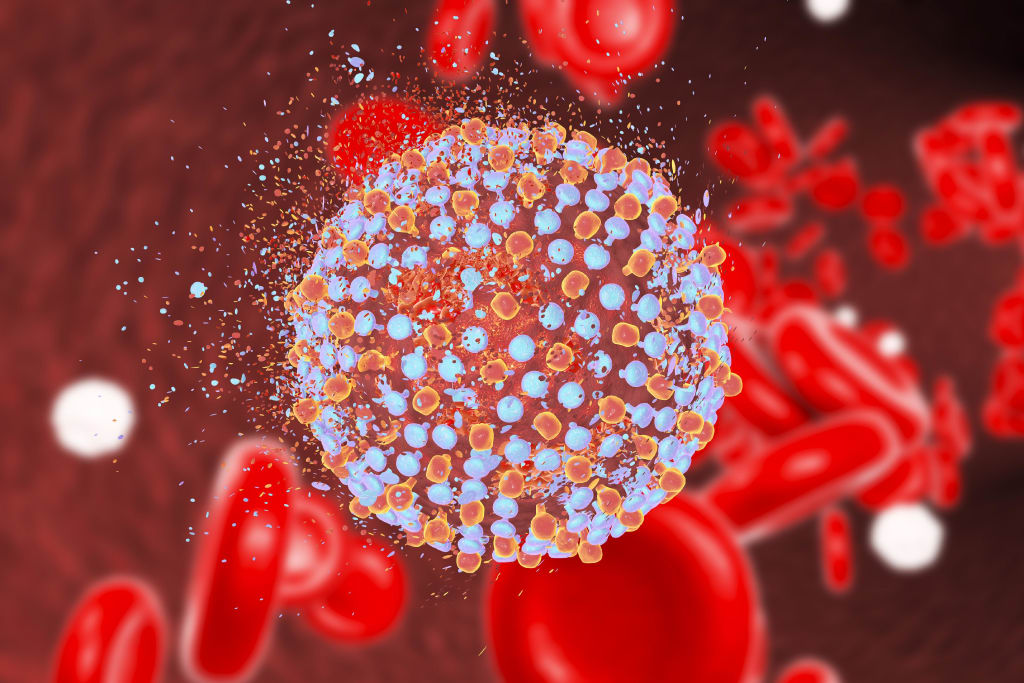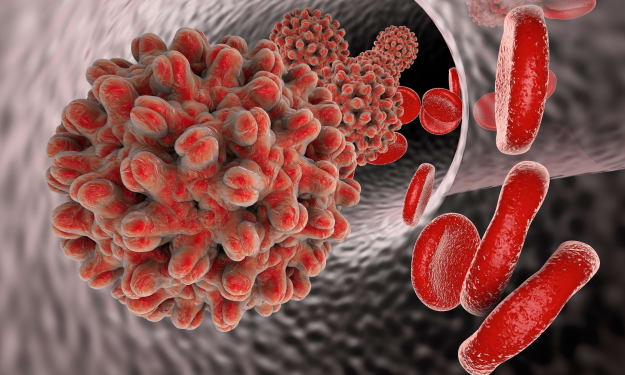
Hepatitis C is a viral infection that affects the liver. It is a major global health problem, with millions of people worldwide affected by the disease. Hepatitis C can cause acute or chronic liver disease, and it is a leading cause of liver cancer and cirrhosis.
The hepatitis C virus (HCV) is transmitted through contact with the blood of an infected person. The most common modes of transmission include sharing needles or other drug injection equipment, receiving blood transfusions or organ transplants before 1992, and being born to a mother who has hepatitis C.
The symptoms of acute hepatitis C can include fever, fatigue, nausea, vomiting, and abdominal pain. Most people who contract acute hepatitis C do not have any symptoms, and the infection can go undetected for many years. However, over time, chronic hepatitis C can lead to serious liver problems, including liver failure, liver cancer, and cirrhosis.
Chronic hepatitis C is a long-term condition that can last for many years, or even for a person's entire life. People with chronic hepatitis C may not have any symptoms, but they are at risk of developing serious liver complications. In some cases, chronic hepatitis C can be treated with antiviral medications that can help slow the progression of the disease and reduce the risk of complications.
There are several types of hepatitis C, and they are classified into genotypes based on their genetic makeup. Genotype 1 is the most common type of hepatitis C in the United States, and it is also the most difficult to treat. However, recent advances in treatment have made it possible to cure hepatitis C in most people with the disease, regardless of their genotype.
The standard treatment for chronic hepatitis C involves a combination of antiviral medications, including interferon and ribavirin. However, these medications can have serious side effects, and they are not effective in all cases. In recent years, new medications known as direct-acting antivirals (DAAs) have been developed, which have revolutionized the treatment of hepatitis C. DAAs are highly effective in curing the disease, and they have fewer side effects than the older medications.
Preventing hepatitis C involves avoiding exposure to the virus. This includes not sharing needles or other drug injection equipment, using precautions such as gloves and other protective gear when working with human blood or other bodily fluids, and practicing safe sex.
There is currently no vaccine for hepatitis C, but researchers are working to develop one. In the meantime, people who are at risk of contracting hepatitis C should take steps to reduce their risk of exposure to the virus.
For people who have already been infected with hepatitis C, there are several treatment options available. Antiviral medications can help slow the progression of the disease and reduce the risk of complications. In some cases, a liver transplant may be necessary for people with severe liver damage.
It is important for individuals with hepatitis C to take steps to protect their liver health, such as avoiding alcohol and other liver-damaging substances, getting regular check-ups with a healthcare provider, and following any treatment recommendations.
In conclusion, hepatitis C is a viral infection that affects the liver and can cause acute or chronic liver disease. The disease is transmitted through contact with the blood of an infected person and can lead to serious liver problems if left untreated. Prevention involves avoiding exposure to the virus, and treatment options include antiviral medications and, in some cases, a liver transplant. With recent advances in treatment, it is possible to cure hepatitis C in most people with the disease, and ongoing research holds promise for the development of a vaccine. It is important for individuals to take steps to protect their liver health and follow any treatment recommendations from their healthcare provider
About the Creator
Doctor Nadia
I am a doctor and writer who has expertise in writing articles on different topics.






Comments
There are no comments for this story
Be the first to respond and start the conversation.